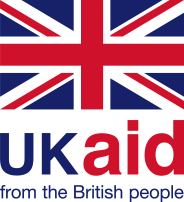Kumari Dong, 31, a home-based weaver from Sarlahi District began her carpet weaving journey in Kathmandu 15 years ago. Living and working out of Nepal’s capital city came with benefits, as well as challenges. Her basic cost-of-living expenses were too steep; little income went into savings or productive use. After Label STEP initiated the decentralization of the carpet manufacturing process with UKaid सीप’s support in November 2019, Kumari, for the first time, saw an opportunity to weave carpets for livelihood right from her home-village.
Innovative Rural-based Skilling and Enterprise Sustainability Model Established for the Carpet Industry
The Kathmandu-centric carpet industry, in recent years, has been plagued with rising production costs and rapid turnover of skilled weavers due to foreign out-migration. Frequent turnover, and subsequent shortage of workers, persisted despite efforts by Label STEP and its industry partners to boost work environment for weavers. With production volume and quality both affected, the once-thriving handmade carpet industry has become increasingly fragile.
Sarlahi in Province 2 is the second largest origin district of weavers; this is where the traditional rug weaving community of Nepal resides. Weavers like Kumari (picture above), preferred working from their own hometown. With सीप’s support, Label STEP and its industry partners—Kaju Rugs, NP Rugs Industries, Vijaya Laxmi Organization, Bagmati Galaincha Udhyog, Anugraha and Lalbandhi Galaincha Udhyog—have co-invested in the creation of seven weaving workshops, linked to national and global carpet value chains. These enterprises, fully functional at Sarlahi, are equipped with skilled and productive weavers that are essential for the productivity and sustenance of the firms involved.
“Nepali handmade rugs already hold a niche in the high-end luxury crafts market; the industry and it’s stakeholders see the benefit of inclusive growth and job creation,” remarked Nathanael Bevan, Development Director of British Embassy in Nepal, reflecting on UKaid सीप’s role in catalyzing growth of skilled labor and jobs in the industry. Hand-knotted carpets rank 4th in export value (TEPC, 2020) with the industry’s contributions notable for foreign exchange generation (approximately USD 70 million) and employment. UKaid सीप’s approach is anchored in the creation of sustainable skilling-based jobs in productive sectors while also supporting revival and growth of the Nepali economy. The innovative model co-created by सीप and STEP is linked to sustainability of the weavers and the industry.
UKaid सीप’s partnership with Label STEP has helped bridge key labour and growth barriers for the carpet industry through a demand-driven approach to skilling and job creation. Michael Christie, honorary brand ambassador for hand-made Nepali carpets (for the Nepal Carpet Manufacturers and Exporters’ Association) and editor of the Ruggist holds the same view: ‘Over the last two years, we have proven that we can make the same quality of carpets in rural villages while expanding rural employment as opposed to urban-centric production and employment.’
Like Kumari, Padma Kumari Bomjon, 47, from Harion in Sarlahi is an experienced weaver. For over eight years, Padma (picture on right) wove carpets in Kathmandu. The earnings she made barely sufficed for essentials, causing her to migrate for low-skill jobs in India. She lived in Punjab for more than 12 years, rotating from job to job, and unable to utilize her artisanry skills. In 2020, when she learnt about the establishment of weaving workshops in her own village, she got on the first bus back home. Upskilled and certified by STEP and its partners, since January 2021, a motivated Padma shared, “Weavers like us are treated as valued contributors. Our satisfaction means the success of the factory as well.” She has found meaning and purpose in her artisanal role.
Stories of Kumari and Padma are common to nearly 400 weavers who now are benefiting through the innovative skilling-linked enterprise development model created by सीप and Label STEP. “These artisans are proof that our partnership—envisaged as an Artisan Village concept—has demonstrated feasibility of high-caliber carpet production outside of Kathmandu. We’ve helped foster a rural-based economy while contributing meaningfully to generation of productive workers, inclusive jobs, and sustained industry growth through linkage with buyers,” remarked Baljit Vohra, Team Leader of सीप.
“I am moved by the initiatives of UKaid सीप given how it has opened avenues for rural based employment generation. I am particularly pleased to witness inclusion of women labour force especially when most of the manufacturing job roles are male-dominated in Province 2. This work is a great example of a transformation of the labour market,” remarked Dipendra Jha, Chief Attorney, Province 2 Government. UKaid सीप’s contributions alongside strategically chosen diverse national and international partners have mainstreamed women’s economic empowerment, bringing quality gender-intentional services from skilling, certification, jobs creation, and enhanced working conditions right to the doorsteps of workers—making dignified locally-based employment viable for women. Chief Attorney Jha also noted the potential of replicating the model through Province 2 Government’s soon-to-release Youth Employment and Self-Employment Fund, which सीप is supporting as a technical advisor.
WATCH UKaid सीप and Label STEP commemorate the innovations and impacts that have unfolded so far and reflect on the way forward. Video editorial here.


